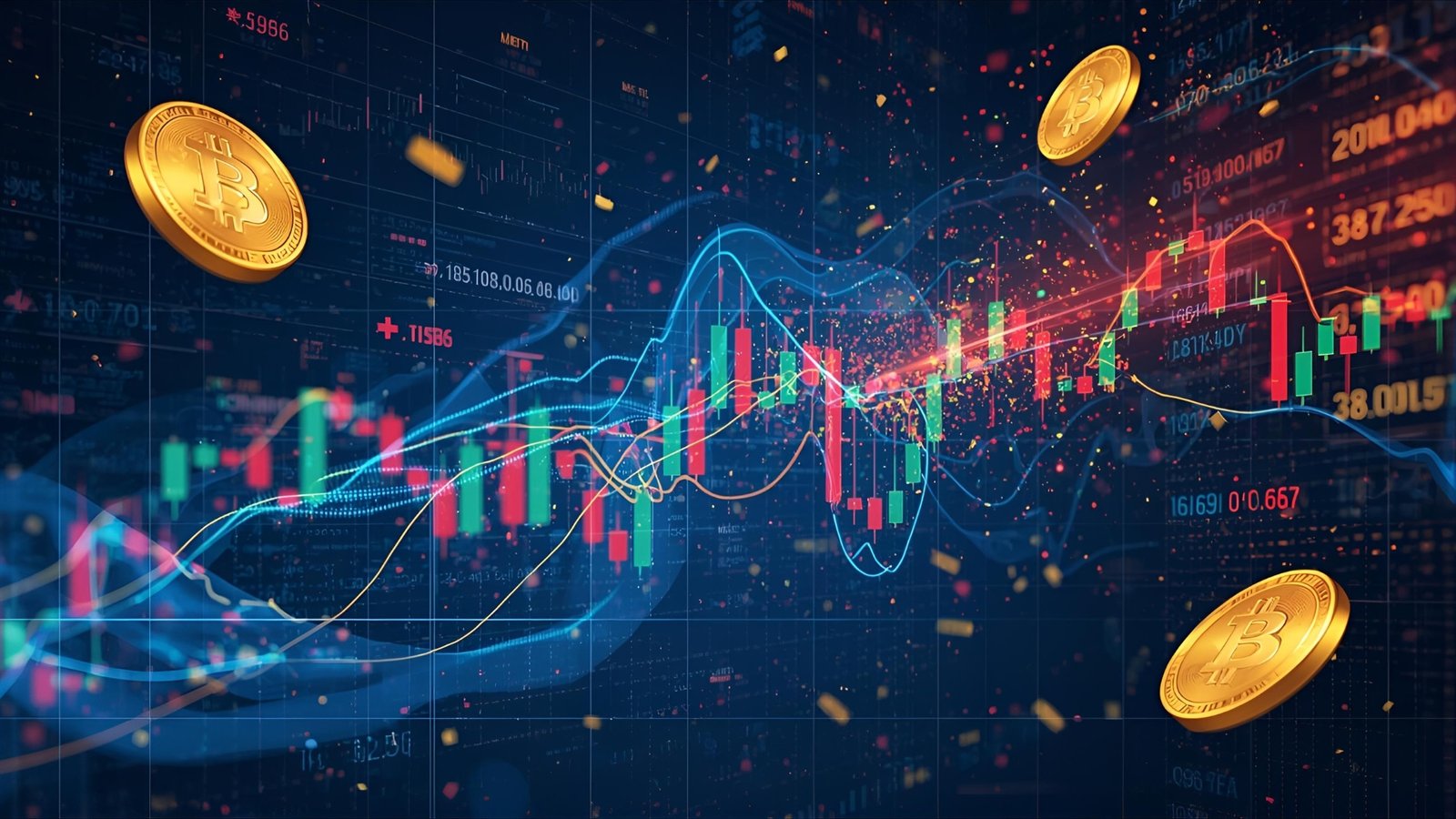If you’ve spent any time around digital assets, you already know that crypto market news moves fast. Prices can swing within minutes, narratives shift overnight, and the forces shaping the next big rally or pullback often start as faint signals hidden in data, policy memos, or developer roadmaps. That’s why mastering the art of reading and acting on crypto market news is a genuine edge. This comprehensive guide breaks down what to watch, how to interpret it, and how to build a level-headed approach that doesn’t get tossed around by every headline.
We’ll look at the macro drivers that push Bitcoin and altcoins higher or lower, the on-chain data and liquidity indicators that professionals monitor, and the regulatory developments that can change the market’s structure in a single announcement. You’ll learn how institutional adoption, spot ETF flows, stablecoin activity, and layer-2 scaling progress can all be translated into practical insights. Most importantly, you’ll see how to connect the dots so that “news” becomes a meaningful signal rather than noise.
Throughout, we’ll use the focus keyword crypto market news naturally, and highlight LSI keywords like digital assets, blockchain, market capitalization, DeFi, staking, NFTs, volatility, and liquidity to give you a complete, readable, and SEO-friendly resource.
What “Crypto Market News” Really Means

Many people think crypto market news is just price updates. In reality, it’s a mosaic. The price of Bitcoin might be reacting to global risk appetite, while Ethereum is responding to a developer milestone, and a mid-cap DeFi token is jumping on a governance vote that unlocks new utility. Understanding crypto market news means understanding these moving parts and how they fit together.
Crypto market news spans macroeconomics, blockchain technology upgrades, venture funding rounds, exchange listings, derivatives positioning, regulatory announcements, on-chain activity, and sentiment shifts on social platforms. A single line in a central bank statement can ripple across digital assets the same way a major protocol upgrade can. Your job as a reader is not to absorb everything, but to filter the relevant pieces and align them with your strategy.
The Macro Drivers Behind Daily Price Action
Interest Rates, Liquidity, and Risk Appetite
Traditional markets matter. When global liquidity is abundant and interest rates are steady or declining, investors naturally reach for risk-on assets, including crypto. Conversely, rising rates and tighter financial conditions can compress valuations and make volatility spikes more likely. This is why crypto market news often tracks interest-rate expectations, monetary policy statements, and macroeconomic prints like inflation or employment.
The Dollar, Commodities, and Correlations
The strength of the U.S. dollar frequently correlates inversely with risk assets. A stronger dollar can weigh on Bitcoin and altcoins, while a weaker dollar may support them. Oil, gold, and equity benchmarks also feed into crypto correlations. The relationships change over time, but understanding them helps decode why crypto market news about macro indicators can matter just as much as a protocol upgrade.
Core Metrics Professionals Watch Every Day
Market Capitalization and Bitcoin Dominance
Total market capitalization tells you whether value is flowing into or out of crypto broadly. Bitcoin dominance—BTC’s share of total market cap—signals the current phase of the cycle. Rising dominance often precedes or accompanies cautious risk-taking, while falling dominance can signal altcoin enthusiasm. Context is everything: a drop in dominance during a broad rally is different from a drop in dominance when the entire market is shrinking.
Trading Volume and Liquidity
Healthy markets need deep liquidity. Watch spot and derivatives volumes across major venues. When crypto market news reports on surging volume around catalysts like spot ETF approvals, exchange integrations, or regulatory clarity, that can be a sign of durable participation rather than fleeting hype. Thin liquidity, by contrast, makes sudden price gaps more likely.
On-Chain Data and Active Addresses
On-chain data—active addresses, transaction throughput, fee levels, and staking participation give a window into real usage. Rising stablecoin supply on exchanges can signal fresh buying power. Climbing TVL in DeFi can reflect growing demand for on-chain yield and services. When crypto market news cites these numbers, don’t just note the level—note the trend.
Open Interest, Funding Rates, and Liquidations
In leveraged markets, open interest and funding rates measure positioning. Elevated open interest with skewed funding can set up “air pockets” where liquidations amplify a move. Headlines about “record open interest” or “funding spikes” are warning lights; traders who survive learn to respect them.
Bitcoin: The Bellwether for the Entire Market
Halvings, Hashrate, and Institutional Flows
Bitcoin remains the benchmark. Hashrate growth signals miner confidence; halving cycles shape long-term supply narratives; institutional adoption through custody solutions and spot ETFs channels mainstream capital into BTC. When crypto market news focuses on flows into or out of these instruments, it’s often pointing at demand that can persist beyond a single trading session.
Narrative Gravity and Flight to Quality
In periods of uncertainty, capital often rotates back to BTC. That’s why adverse macro headlines or policy uncertainty can increase Bitcoin dominance. Conversely, when confidence grows, money may flow out along the risk curve into altcoins. Reading crypto market news through this lens helps you understand where capital is headed next.
Ethereum and the Altcoin Engine

The Role of Ethereum as a Settlement Layer
Ethereum aims to be the world’s decentralized settlement layer. Its fee structure, staking yield dynamics, and roadmap for scalability set the pace for much of Web3. When crypto market news highlights fee spikes, developer milestones, or validator updates, it’s really telling you about the cost and capacity of the ecosystem’s core infrastructure.
Layer-2 Scaling and the Cost of Blockspace
Layer-2 networks reduce costs and boost throughput. Adoption metrics—bridged assets, daily transactions, TVL, and developer activity indicate whether L2s are not just faster but actually winning users. Bullish crypto market news on L2 traction can precede expanding activity in DeFi, NFTs, and gaming.
Altcoin Cycles and Sector Rotations
Outside of ETH, altcoin cycles rotate through themes: DeFi blue chips, perpetual DEXs, liquid staking tokens, RWA protocols that tokenize real-world assets, interoperability plays, and AI-adjacent coins that ride broader tech narratives. Strong crypto market news in one sector often triggers a sympathetic bid in related projects—but fundamentals still matter, especially liquidity and sustainable demand.
DeFi: From Speculation to Infrastructure
Why DeFi Matters Even in Risk-Off Phases
DeFi protocols replicate exchange, lending, and asset-management functions on-chain. In risk-off phases, usage can persist when products deliver real utility—cheap swaps, reliable yield, or composable money markets. Crypto market news that focuses solely on token prices can miss the health of the underlying rails. Look for consistent fee revenue, audited upgrades, and diversified collateral.
Yield Mechanics, TVL, and Smart Contract Risk
Yields come from somewhere—trading fees, borrow demand, protocol incentives, or external sources like staking or restaking. Sustainable yield is transparent and based on real activity; unsustainable yield often relies on emissions or circular dynamics. When news touts double-digit APYs, evaluate the source of those returns and the smart contract risk involved.
NFTs, Gaming, and Consumer Crypto
From JPEGs to Utility
NFTs have evolved beyond collectibles into identity, ticketing, and in-game assets. Crypto market news about major brands entering the space, or about new standards for royalties and interoperability, points to more durable use cases. The headline you’re looking for is not just “floor price up,” but “integration live,” “user retention up,” or “royalty enforcement adopted.”
Web3 Gaming and On-Chain Economies
Games live or die by fun and retention. On-chain economies add true ownership, but they must be balanced to avoid runaway inflation of in-game assets. Keep an eye on daily active users, session length, and secondary-market liquidity. News about new launches is less important than news about sustained engagement.
The Quiet Power of Liquidity
Why Stablecoins Are the Market’s Circulatory System
A growing or shrinking stablecoin float reveals risk appetite. Rising balances on exchanges can precede rallies as sidelined capital prepares to deploy. News about banking rails, reserve transparency, or cross-chain minting standards often signals whether liquidity is set to improve or deteriorate.
Settlement, Remittances, and Institutional Use
Stablecoins serve as fast settlement rails and cross-border remittance tools. When crypto market news highlights partnerships between fintechs, payment firms, and stablecoin issuers, it can mark the mainstreaming of on-chain dollars—a trend that supports long-term adoption.
From Uncertainty to Frameworks
Regional Approaches and What They Mean
Different jurisdictions take different tacks: some emphasize consumer protection and disclosures; others focus on innovation sandboxes and token classification. The most market-moving regulatory news clarifies custody, securities status, staking treatment, tax guidelines, and how spot ETFs or ETNs are handled. Clear rules can unlock pent-up demand; restrictive moves can shift liquidity offshore.
Compliance as a Competitive Edge
For exchanges, custodians, and token issuers, strong compliance programs are no longer optional. In crypto market news, watch for licenses granted, audit results published, and transparency reports issued. These signal which platforms are building durable bridges to traditional finance.
Institutional Adoption and Market Structure

ETFs, Index Products, and Prime Brokerage
Institutional adoption isn’t a slogan; it’s visible in products and plumbing. Spot ETF inflows, index products, insured custody, and prime brokerage services gradually make crypto investable for large pools of capital. When news reports expanding product shelves and improved market access, it’s often foreshadowing steadier demand and reduced volatility.
The Role of Market Makers and Derivatives
Sophisticated market makers stabilize spreads and enable large orders. Options and futures add risk-management tools that can smooth price discovery. Pay attention when crypto market news mentions new liquidity programs or cross-margin upgrades; these fine-tune the engine that keeps prices efficient.
How to Use News Without Being Used by It
Build a Framework Before the Headline Hits
Decide in advance what data points actually matter to you. For example, “I’ll add on dips if market capitalization holds above X,” or “I’ll reduce risk if funding rates flip heavily positive for three sessions.” By pre-committing to criteria, you avoid chasing every headline embedded in crypto market news.
Separate Signal From Sentiment
A sudden price spike on thin volume is sentiment; an uptick in on-chain activity plus consistent volume across venues is closer to signal. A roadmap promise is sentiment; a shipped upgrade with growing user counts is signal. Train yourself to ask, “What would falsify this story?” If you can’t find a falsification, it’s probably not a robust thesis.
How to Read Crypto Market News Critically
Check the Source and the Data
Who’s reporting? Are there blockchain explorers, dashboards, or official posts to verify claims? If it’s a leaked screenshot or a partial chart, be skeptical. Solid crypto market news cites sources, shows methodology, and acknowledges uncertainty.
Timeframes and Context
A 24-hour move may look dramatic, but zooming out to 30 days or one quarter can reveal a mean-reversion pattern. Each headline sits within a longer narrative arc—halving cycles, multi-year layer-2 adoption, or evolving regulatory clarity. Align the timeframe of the news with your timeframe as an investor.
Trading vs. Investing: Two Different Games
Trading the News
Traders look for catalysts: listings, unlocks, emissions changes, product launches. They combine order flow, open interest, and funding with crypto market news to predict short-term direction. Fast reaction matters, but so does having an exit plan. Winning traders often risk little to learn a lot; losing traders risk a lot to learn a little.
Investing Through Cycles
Investors focus on users, revenue, developer traction, and defensible moats. They ask whether a token represents cash flows, governance power, or economic rights tied to usage. In this mode, crypto market news is useful when it validates long-term adoption stories and product-market fit, not when it sparks a one-day spike.
Building Your Personal News Workflow
Curate, Don’t Drown
Pick a handful of reliable publications, protocol blogs, and analytics dashboards. Track a short list of KPI-style metrics—market capitalization, Bitcoin dominance, exchange balances of stablecoins, and TVL across DeFi sectors. Layer in an alerting system for major regulatory developments and protocol upgrades. By standardizing your inputs, you convert chaotic headlines into a structured feed.
Turn Headlines Into Checklists
When you read a story, turn it into a checklist: What changed? Is it verifiable? Who benefits? Are there second-order effects? What conditions would negate the thesis? This turns crypto market news from entertainment into analysis.
Spotting Early Signals Before They Hit the Front Page
Developer Activity and Roadmaps
Major upgrades usually appear on public repos, governance forums, or dev calls before they become mainstream headlines. Track release candidates, audit schedules, and testnet activity. A consistent cadence of commits and issues closed is often the earliest sign of momentum.
Capital Formation and Ecosystem Grants
Venture rounds, foundation grants, accelerator cohorts, and hackathon results signal where talent and capital are converging. Crypto market news that surfaces these flows can give you a months-ahead preview of the next narrative.
The Psychology of Markets: Managing Yourself
Beware Recency Bias and Narrative Traps
Human brains overweight recent events. A sharp sell-off can feel like the end of the world; a parabolic rally can feel like destiny. Recognize that volatility is a feature, not a bug, of digital assets. Use predefined risk limits and a position-sizing model that keeps you in the game.
Process Over Prediction
You don’t need to predict every move to win. You need a process that updates as crypto market news delivers new information. Think like a scientist: form a hypothesis, test it with data, and adjust without ego.
2025 and Beyond: The Next Phase of Maturity
Tokenized Finance and Real-World Assets
RWA tokenization is likely to scale as compliance rails solidify. The bridge between traditional finance and blockchain rails will deliver new collateral types and yield sources. News about partnerships between banks, asset managers, and on-chain protocols signals the maturation of crypto’s back-end plumbing.
Privacy, Identity, and Consumer UX
Privacy-preserving technologies, decentralized identity standards, and wallet UX improvements will open new consumer use cases. The next phase of crypto market news will feature not just price and regulation, but product stories about seamless onboarding, safer self-custody, and invisible crypto in mainstream apps.
Crypto as Invisible Infrastructure
The ultimate sign of success will be when crypto fades into the background—when instant, borderless settlement and programmable money power finance without users even noticing the word “blockchain.” Headlines will still move prices, but utility will anchor value.
Conclusion
Staying ahead in crypto market news is about frameworks, not FOMO. Learn which macro signals matter, track the on-chain metrics that map to real activity, understand how regulatory developments reshape the landscape, and build a personal workflow that filters noise into actionable insight. Whether you’re trading short-term catalysts or investing across cycles, the path to better decisions is the same: verify, contextualize, and act with a plan. In a market defined by innovation and volatility, that discipline is your durable edge.
FAQs
Q: What is the quickest way to get started with crypto market news without getting overwhelmed?
A: Choose two or three reputable news sources, follow a concise dashboard for market capitalization, Bitcoin dominance, and stablecoin exchange balances, and set alerts for major regulatory updates and protocol releases. Limiting inputs keeps you focused on signal instead of noise.
Q: How do I know if a headline will have real price impact?
A: Look for confirmation in data. If crypto market news announces a catalyst, check trading volume, open interest, and on-chain metrics like active addresses or TVL. When price, volume, and usage all move together, probability of sustained impact rises.
Q: Are spot ETFs and institutional products bullish by default?
A: They’re bullish when they unlock new, steady demand and improve market structure, but context matters. Watch net inflows, custody quality, and whether products broaden access. Sustained participation, not just launch-day hype, is the key.
Q: How should I use on-chain data in my strategy?
A: Treat it as a real-time fundamentals feed. For example, rising stablecoin balances on exchanges can precede buying, falling exchange reserves can signal accumulation, and consistent DeFi fee revenue can validate a protocol’s utility. Always corroborate with price and liquidity.
Q: What’s the best way to avoid overreacting to volatility?
A: Predefine risk limits and rebalancing rules. Decide in advance when you’ll add, reduce, or sit out. When crypto market news hits, you’ll act according to plan rather than emotion, which is the difference between surviving cycles and getting washed out.
Read More: Trump’s Truth Social Files Bitcoin ETF, DJT Stock Surges


